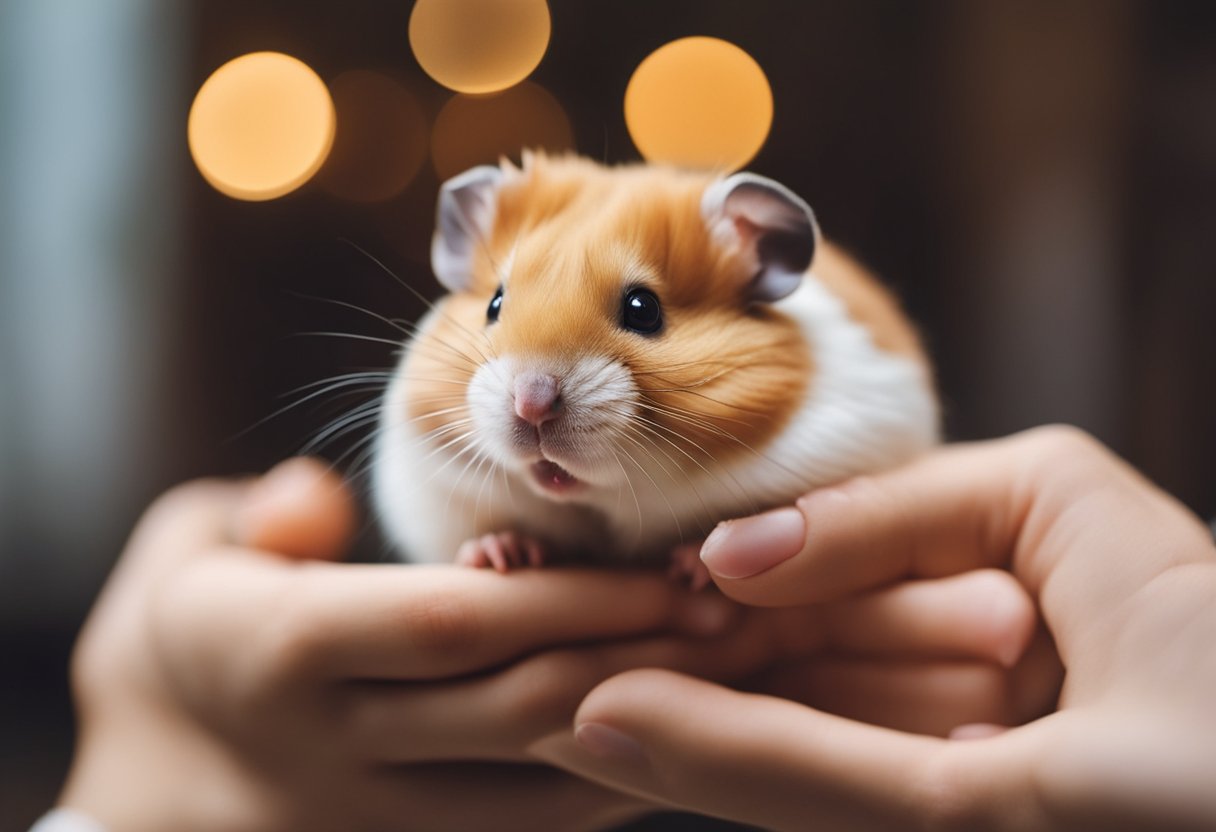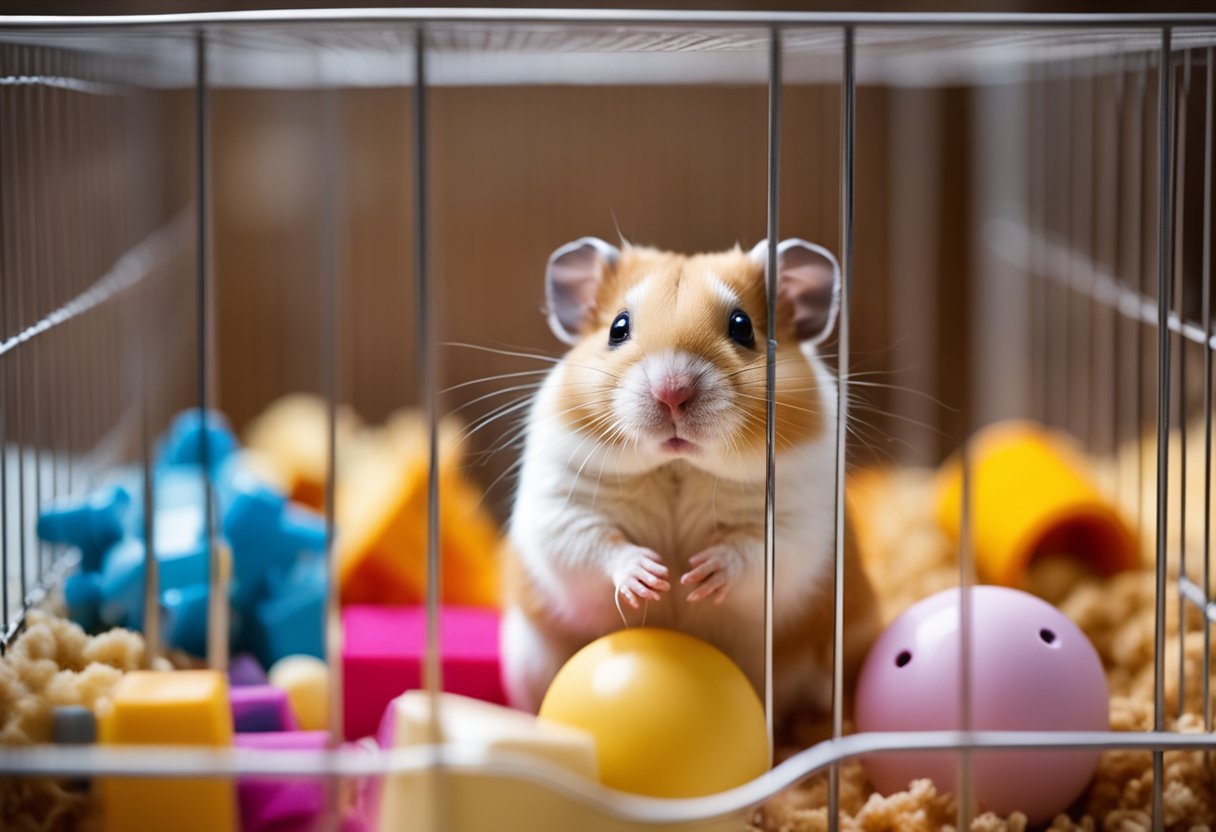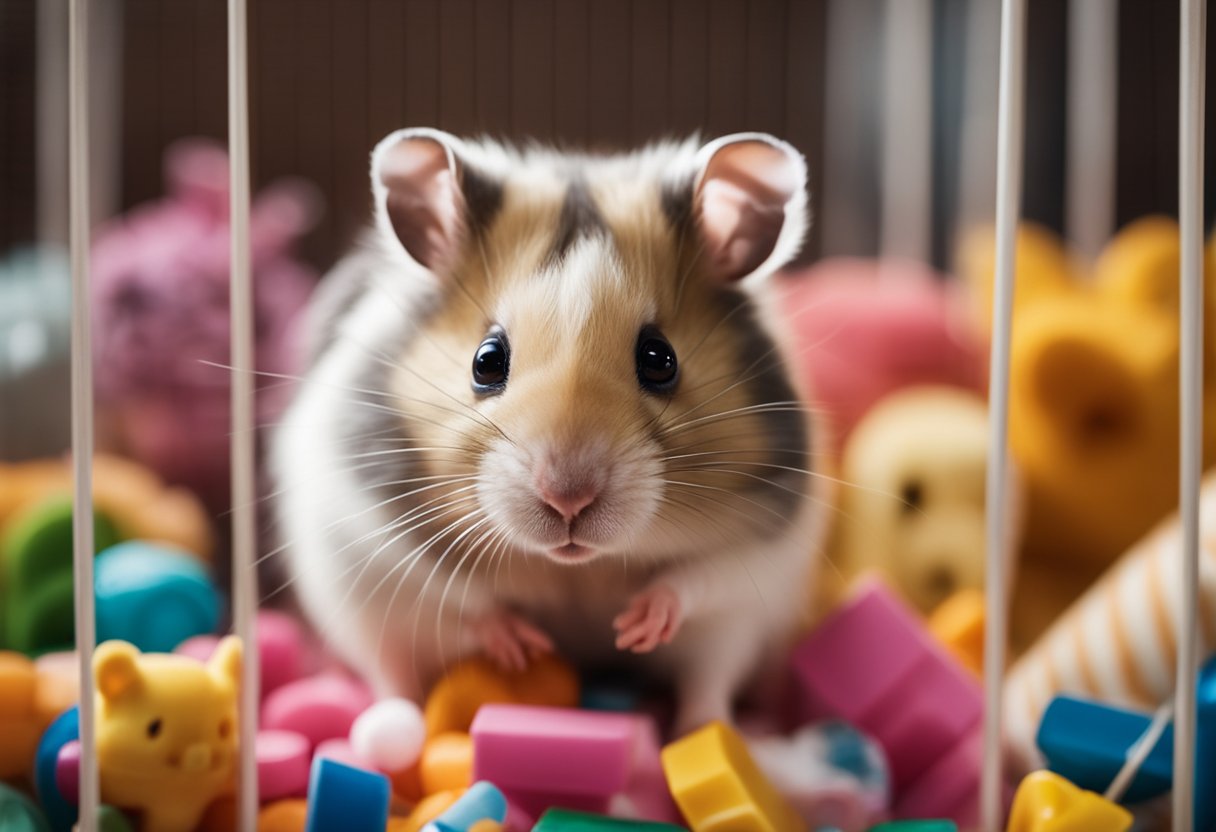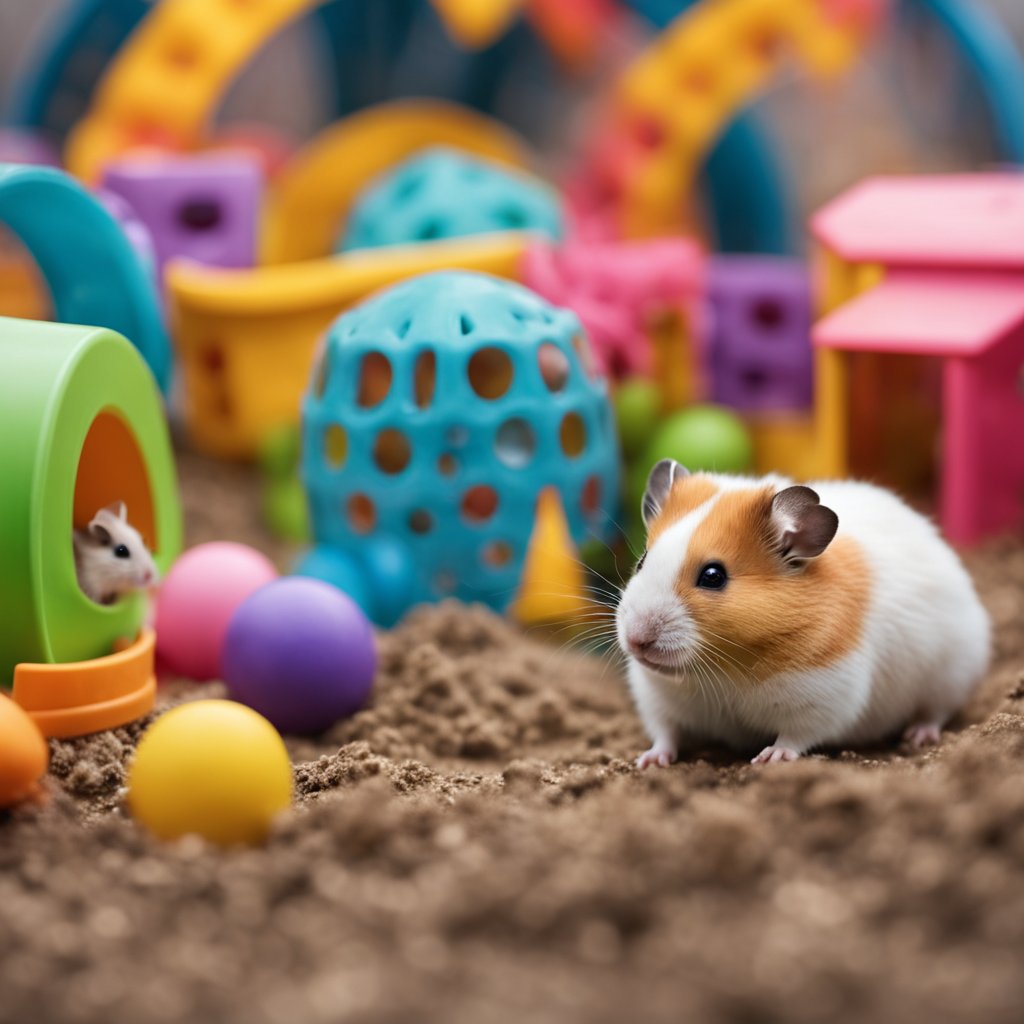How Many Years Do Hamsters Live? A Comprehensive Guide to Hamster Lifespan
Hamsters are popular pets around the world, known for their small size and adorable appearance. If you’re considering getting a hamster, one of the most important things to consider is their lifespan. How many years do hamsters live? The answer to this question can vary depending on the breed of hamster, as well as the care they receive.

There are several different breeds of hamsters, each with their own average lifespan. The most common breeds of pet hamsters are the Syrian hamster, the Dwarf Campbell Russian hamster, the Dwarf Winter White Russian hamster, the Chinese hamster, and the Roborovski hamster. According to Pets Radar, the average lifespan of a pet hamster is between 1.5 and 4 years, although some hamsters can live longer depending on their care and breed.
If you’re considering getting a pet hamster, it’s important to understand how to properly care for them in order to help them live a long and healthy life. This includes providing them with a suitable habitat, a healthy diet, and plenty of exercise and mental stimulation. With the right care, you can help your pet hamster live a happy and fulfilling life.
Key Takeaways
- The average lifespan of a pet hamster is between 1.5 and 4 years, depending on the breed and care they receive.
- Proper care, including a suitable habitat, healthy diet, and exercise, can help your hamster live a long and healthy life.
- Hamsters make great pets for those who are willing to provide them with the care they need.
Lifespan of Hamsters

If you are considering getting a hamster as a pet, it is important to understand their lifespan. Hamsters are small, furry rodents that make great pets for many people. They are low maintenance, easy to care for, and can be quite entertaining. However, before you bring a hamster into your home, it is important to understand how long they are likely to live.
Factors Influencing Lifespan
There are several factors that can influence the lifespan of a hamster. Some of these factors include:
- Genetics: Just like with humans, genetics can play a role in how long a hamster lives. Some hamsters may be predisposed to certain health conditions that can shorten their lifespan.
- Diet: A hamster’s diet can also impact their lifespan. Feeding your hamster a healthy, balanced diet can help them live longer.
- Environment: The environment in which a hamster lives can also impact their lifespan. A clean, comfortable, and stress-free environment can help your hamster live a longer, healthier life.
Average Lifespan by Species
On average, hamsters live for around 2 to 3 years. However, the lifespan can vary depending on the species of hamster. The following are the average lifespans of some of the most popular hamster species:
- Syrian Hamster: 2 to 2.5 years
- Roborovski Hamster: 3 to 3.5 years
- Campbell’s Dwarf Hamster: 2 to 5 years
- Chinese Hamster: 2 to 3 years
- Winter White Russian Dwarf Hamster: 1.5 to 2 years
It is important to note that these are just averages and individual hamsters may live longer or shorter than these ranges. By providing your hamster with a healthy diet, clean environment, and proper care, you can help maximize their lifespan.
Caring for a Hamster

Hamsters are popular pets that can be a joy to care for. They are generally low-maintenance animals, but they do require some specific care to ensure they live a long and healthy life. Here are some tips for caring for your hamster:
Diet and Nutrition
A healthy diet is essential for your hamster’s well-being. Hamsters are omnivores and need a balanced diet that includes both protein and fiber. You can feed your hamster a commercial hamster food that is specifically formulated for their nutritional needs. Additionally, you can supplement their diet with fresh fruits and vegetables, such as carrots, apples, and broccoli. Make sure to avoid feeding them sugary or fatty foods, as these can lead to health problems.
Habitat and Enrichment
Hamsters need a safe and comfortable habitat to live in. A cage with a solid bottom is best, as it will prevent your hamster from escaping or getting injured. Make sure the cage is large enough to accommodate your hamster’s size and provide plenty of space for them to move around. You should also provide your hamster with plenty of enrichment, such as toys, tunnels, and an exercise wheel. This will help keep them mentally stimulated and prevent boredom.
Health and Veterinary Care
Regular veterinary care is essential for your hamster’s health. Hamsters are prone to a variety of health problems, including dental issues, respiratory infections, and digestive problems. Make sure to take your hamster to the vet for regular check-ups and address any health concerns promptly. Additionally, you should keep your hamster’s cage clean and provide them with fresh water and bedding regularly to prevent illness.
In summary, caring for a hamster requires attention to their diet and nutrition, habitat and enrichment, and health and veterinary care. By providing your hamster with a healthy and stimulating environment, you can ensure they live a long and happy life.
Resources

If you are interested in learning more about hamster lifespan, there are several resources available that can help you. Here are a few resources that you may find helpful:
- PetsRadar provides information on the life cycle of domestic hamsters. According to the article, the average lifespan of a pet hamster is between 1.5 and 4 years, although some hamsters can live longer depending on their care and the species. The article also lists the average lifespans of different hamster breeds.
- PetKeen offers a vet-reviewed guide to hamster lifespan, data, and care. The article states that the average hamster will live for around 2 to 3 years, with certain breeds living longer than others. The article also lists the average lifespans of some of the most popular hamster breeds.
- Hamsters101 provides 37 tips for taking your hamster care to the next level. The tips cover various areas of hamster care, including purchasing a hamster, choosing a habitat, understanding behavior, feeding, cleaning, and grooming.
- AnimalLama offers a pet hamster lifespan chart that helps you determine how many hamster years are equivalent to human years. The article states that the average lifespan of a pet hamster is 1.5 to 2 years, with a maximum expected lifespan of 3 years. The article also provides information on differences in lifespan among hamster species.
These resources can help you learn more about hamster lifespan and how to take care of your pet hamster.
Conclusion

In conclusion, the lifespan of a hamster varies depending on the species, with most hamsters living for around 2 to 3 years when kept as pets. Syrian hamsters generally live for 2 to 3 years, Dwarf hamsters live for 1.5 to 2 years, and Roborovski hamsters live for 2 to 3 years. However, with proper care, attention, and a healthy diet, you can help your hamster live a longer and happier life.
To ensure your hamster lives a healthy life, it is important to provide them with a clean and comfortable living space, a balanced diet, and plenty of exercise and stimulation. This includes providing them with a cage that is big enough for them to move around in, fresh water, and a diet that is high in protein and low in fat. You can also provide your hamster with toys and activities to keep them entertained and stimulated.
It is important to note that hamsters are sensitive creatures and can be prone to certain health conditions. Wet tail, a condition that causes diarrhea and dehydration, is common in young hamsters and can be fatal if left untreated. Other common health problems include respiratory infections, dental issues, and tumors. If you notice any signs of illness in your hamster, such as lethargy, loss of appetite, or difficulty breathing, it is important to take them to a veterinarian as soon as possible.
Overall, by providing your hamster with proper care and attention, you can help them live a long and healthy life.
Frequently Asked Questions

What is the average lifespan of a Syrian hamster?
Syrian hamsters, also known as golden hamsters, have an average lifespan of 2 to 3 years. However, with proper care and attention, you can help your hamster live a longer and happier life.
How long do dwarf hamsters typically live?
Dwarf hamsters, including the Campbell’s, Roborovski, and Winter White species, have an average lifespan of 1.5 to 3 years. However, some dwarf hamsters may live longer with the right care.
Can hamsters survive for more than 5 years under human care?
It is rare for hamsters to live for more than 5 years under human care, but it is possible. Factors that contribute to a hamster’s lifespan include genetics, diet, exercise, and overall care.
What factors contribute to the lifespan of hamsters in captivity?
The lifespan of hamsters in captivity can be affected by various factors, including genetics, diet, exercise, environment, and overall care. Providing your hamster with a healthy diet, a clean living space, and regular exercise can help increase their lifespan.
Is it possible for a hamster to live up to 12 years?
While it is possible for some hamsters to live up to 3-4 years, it is extremely rare for any hamster to live up to 12 years. In fact, the oldest recorded hamster lived to be 4.5 years old.
What is the typical longevity of hamsters when they live in the wild?
Hamsters that live in the wild typically have a shorter lifespan than those in captivity, due to predators, disease, and other environmental factors. The average lifespan of wild hamsters varies by species, but it is generally shorter than that of hamsters in captivity.
